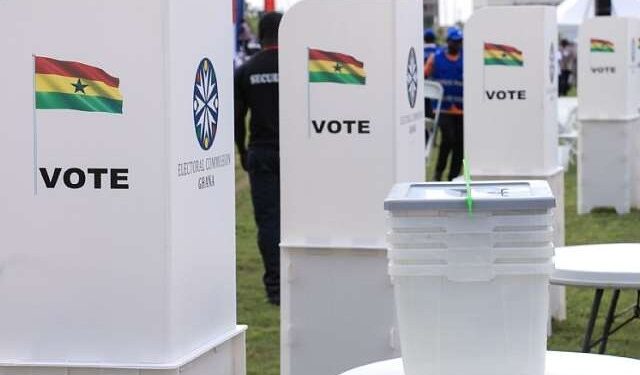Ghana has long been lauded as a beacon of democracy and stability in a region often plagued by political strife and uncertainty. This enviable reputation, however, is a fragile asset, built on the collective sweat and sacrifice of a nation that has consistently chosen dialogue over discord. As we approach a crucial by-election in Akwatia following the unfortunate passing of the incumbent New Patriotic Party (NPP) Member of Parliament, we find ourselves at a critical juncture. The memory of the electoral violence that marred the re-run of certain polling stations in Ablekuma North in July 2025 serves as a stark reminder of how quickly our democratic progress can be undone.
In moments of national crisis or profound challenge, history shows us the power of a singular, unifying voice to transcend political divisions. During World War II, when France had fallen to Nazi Germany, General Charles de Gaulle, in exile in London, made a powerful broadcast on the BBC on June 18, 1940. He called upon the French people to resist the occupation, famously declaring, “The flame of the French resistance must not be extinguished and will not be extinguished” (de Gaulle, 1940). This message, delivered from a distance and without political office in France, became a rallying cry for the Free French and inspired a nationwide resistance movement that ultimately contributed to the liberation of France.
Similarly, in 1975, facing the challenge of reclaiming its Southern Sahara territories from Spanish colonial rule, King Hassan II of Morocco called upon his people to participate in the “Green March.” Hundreds of thousands of Moroccans (men and women with their children), unarmed and united, marched south in a demonstration of national will that led to the peaceful withdrawal of Spain (Hassan II, 1975). More recently, in 2025, faced with a severe and prolonged drought, His Majesty King Mohammed VI called upon Moroccans to refrain from the traditional slaughter of sheep for the Eid al-Adha festival. This request, made to ease the financial burden on struggling families and the dwindling population of livestock, was widely heeded, demonstrating the continued capacity for a single voice to unite a nation for a common good (Mohammed VI, 2025). It is recalled that this refrain from slaughtering has also been made thrice during the reign of King Hassan II in varying circumstances (wartime, drought and IMF mandate) and they were all heeded to (The Guardian, 2025).
Regrettably, Ghana today appears to lack such a unifying figure. Our political landscape is deeply polarized, with the fierce rivalry between the NPP and the National Democratic Congress (NDC) permeating every aspect of society. A call to action, no matter how noble or in the collective interest, is often immediately coloured with partisan hues. A well-intentioned plea for peace and unity is too often dismissed as a political ploy by one side or the other, making it nearly impossible for Ghanaians to agree on a common front, even on issues of national importance.
The aftermath of the Ablekuma North re-run elections served as a powerful testament to this deep-seated political division. Social media was rife with hostile rhetoric and instigations for what many feared would be a fertile ground for another electoral violence in Akwatia by-election. These provocations came from all sides, from grassroots supporters to high-ranking party officials. This is precisely the moment when a single, credible voice, unburdened by party loyalty, should have risen to call for calm and restraint.
In the spirit of moving beyond this cycle of violence and political acrimony, a single, decisive policy recommendation for the upcoming Akwatia by-election is being proposed: all stakeholders, including political parties, are welcome to campaign in Akwatia in the lead-up to the election, but on election day, the constituency must be reserved for its inhabitants and those essential to the democratic process. Apart from security forces, accredited observers, and journalists, all other persons, regardless of their status or position within a political party, must vacate the constituency. Any individual found to be in violation of this directive must be severely reprimanded.
Ghanaians have built a democracy that is the envy of the continent. This legacy was earned with sweat and blood, and it is not a commodity to be squandered for the narrow, self-serving interests of a small political class. Ghana must not allow the aspirations of a few to degrade her collective achievements. The nation’s identity as one people, bound by shared values and a common destiny, is far more significant than any political divide. It is time to rally around the cause of a peaceful Akwatia by-election, proving once again that our unity is our greatest strength. God bless our homeland Ghana and make it great and strong.
While these recommendations are being proposed, it is also important for the national security apparatus, particularly the National Investigations Bureau (NIB) and the Ghana Police Service (GPS) to use intelligence information to develop a risk assessment, response plan and strategy to deal with any efforts to undermine the peace.
References
De Gaulle, C. (1940, June 18). The appeal of June 18. BBC. https://www.bbc.com/historyofthebbc/anniversaries/june/de-gaulles-first-broadcast-to-france
Hassan II. (1975, November 5). من خطب جلالة الملك الحسن الثاني الخاصة بالمسيرة الخضراء. Royal Palace of Morocco. https://www.youtube.com/watch?v=MKI_qVvnyqA
Mohammed VI. (2025, March 2). Royal message on Eid al-Adha. Ministry of Religious Affairs. The Guardian. (2025, February 27). King asks Moroccans not to kill sheep for Eid al-Adha as drought reduces herds. https://www.theguardian.com/world/2025/feb/27/king-moroccans-not-kill-sheep-eid-al-adha-drought#:~:text=Thu%2027%20Feb%202025%2010.26,to%20a%20six%2Dyear%20drought.






























